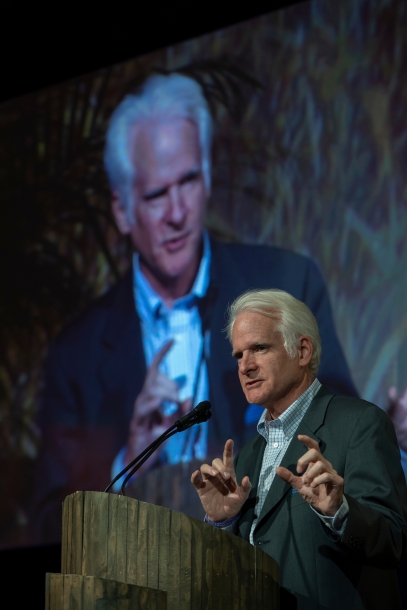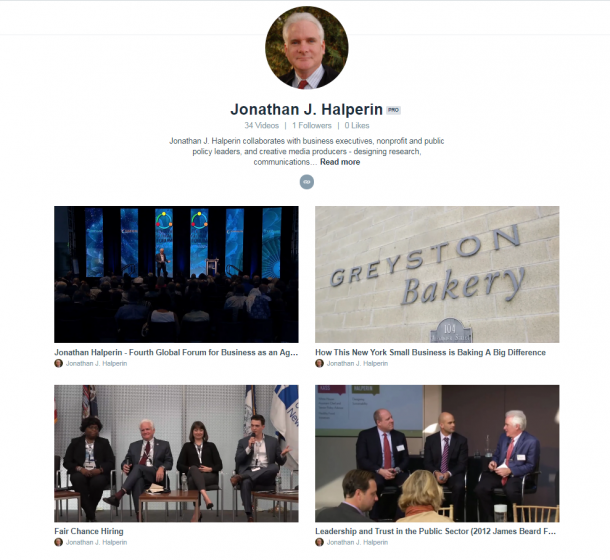You are here
Newton Was More Right Than He Knew “…an object in motion remains in motion unless acted on….”
In Minneapolis for a convening to help build “an Intersectional Philanthropic Approach: Climate Change, Agriculture, and Healthy Rural Communities”, I am reflecting on a film we made in 2009. Hope in a Changing Climate premiered at Agriculture and Rural Development Day at COP 15, the goals of which are described below in the report from the International Institute for Sustainable Development.
“The key objectives of the meeting were to build consensus on ways to fully incorporate agriculture into the post-Copenhagen climate agenda and to discuss strategies and actions needed to address climate change adaptation and mitigation in the agriculture sector.”
Tom Vilsack, The U.S. Secretary of Agriculture, both then and now, addressed the group and “underscored that food security and climate change are linked and one cannot be addressed without the other.” The film went on to be broadcast globally by BBC World, received numerous awards, and was the impetus for gatherings and guided discussions in over 30 countries.
And now we are approaching COP … 29.
I thus can’t decide whether I am proud to be a part of this important meeting or dismayed that it has taken us so long to have such a joint convening of funders. Probably both. Congratulations are due to the leaders and staff of all the sponsoring organizations: Sustainable Agriculture and Food Systems Funders, Climate and Energy Funders Group, Funders for Regenerative Agriculture and the Health and Environmental Funders Network. Putting together something like this takes a ton of thinking, planning, coordination, and execution. And as has been the case with all previous SAFSF gatherings, I am sure it will be enlightening, spawn collaboration, and help move not just one but multiple needles.
But why has it taken so long to do this – to act? Surely it is not because participants don’t know one another. And while there is always some competition for members among philanthropic affinity groups, we are a generally collegial group and don’t operate in the “free” market that many would likely agree is the cause of serious environmental, climate, health, food, and agricultural challenges. And although resources are always scarce, it is also not for lack of funds.
The last 18-months has seen a host of positive announcements from USDA, ClimateWorks, Acumen and others; and the Global Alliance for the Future of Food, Rockefeller Foundation and additional organizations are pushing for deeper collaboration in advance of COP 29. Yet the question persists; why the lag from COP 15 to COP 29? I’m not sure of the answer, but I think it is important to reflect on how we arrived where we have, at the moment we have.
I propose for consideration what I think is a major obstacle that we need to overcome. Most of us are not trained as systems thinkers. Most of us don’t know the underlying principles that are used to design, understand, and fix systems. Many of us work in organizations where we encourage others, or are ourselves encouraged, to think outside the box. But very few of us have been charged with thinking about the systems that connect the boxes.
Despite our commitment to drive systems change, how many foundations have a ‘program officer for systems’? A member of SAFSF for quite a few years, I have been a regular irritant on this matter – and am excited that Clare Fox, the new head of SAFSF, spoke to the importance of systems in her opening remarks. While the language of systems change can seem opaque, it’s no more daunting to understand system dynamics and hierarchy or mental models than it is to come to terms with carbon sequestration, glyphosate, or nutritional deficiencies. It is helpful when trying to change systems to understand the differences between a fulcrum, a lever, and a leverage point. Whether our vocabulary defines our thinking or our thinking defines our vocabulary, it’s hard to change systems unless we understand them.
Let’s set some targets.
- A webinar series for foundation trustees and leaders on the fundamental of systems thinking;
- Advanced training in systems design for a staff member;
- Guest speakers at annual conferences who focus on systems design and change; or
- A digital and curated library of materials on systems thinking.
I am sure other folks will have better ideas for how to overcome this obstacle. But, please, let’s not wait for COP 40.
Watch the full-length version of "Hope in a Changing Climate"
(Courtesy of Plant for the Planet)
- jonathan.halperin's blog
- Log in or register to post comments

